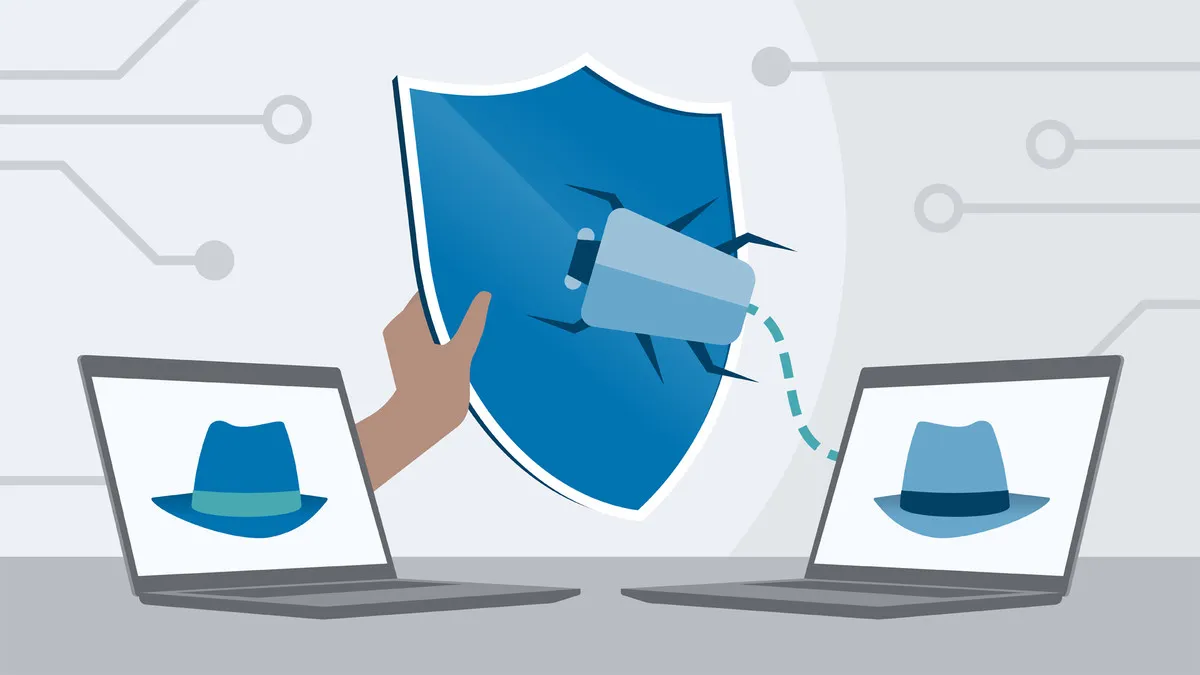
Ethical Hacking: System Hacking 
This course provides an introduction to ethical hacking and system hacking, teaching students how to detect, prevent, and counter system hacking techniques such as password cracking, privilege escalation, spyware, and keylogging. It also prepares students for the Certified Ethical Hacker exam. ▼
ADVERTISEMENT
Course Feature
![]() Cost:
Cost:
Free Trial
![]() Provider:
Provider:
LinkedIn Learning
![]() Certificate:
Certificate:
No Information
![]() Language:
Language:
English
![]() Start Date:
Start Date:
Self Paced
Course Overview
❗The content presented here is sourced directly from LinkedIn Learning platform. For comprehensive course details, including enrollment information, simply click on the 'Go to class' link on our website.
Updated in [March 06th, 2023]
This course provides an overview of ethical hacking and system hacking. It covers the main methods of system hacking, such as password cracking, privilege escalation, spyware installation, and keylogging. Participants will learn how to detect, prevent, and counter these types of attacks. The course also provides IT security professionals with the knowledge and skills to fight these attacks.
[Applications]
The application of this course can be seen in the field of IT security. After taking this course, IT security professionals will be better equipped to detect, prevent, and counter system hacking attacks. They will be able to identify the main methods of system hacking, such as password cracking, privilege escalation, spyware installation, and keylogging, and will be able to implement the necessary countermeasures to protect their systems. Additionally, they will be able to recognize the signs of system hacking and take the appropriate steps to mitigate the damage.
[Career Paths]
1. Cyber Security Analyst: Cyber security analysts are responsible for monitoring and protecting an organization’s computer networks and systems from cyber-attacks. They use ethical hacking techniques to identify and address potential security vulnerabilities, and develop strategies to protect the organization’s data and systems. As the demand for cyber security professionals continues to grow, the job outlook for cyber security analysts is expected to remain strong.
2. Penetration Tester: Penetration testers are responsible for testing an organization’s security systems and networks to identify potential vulnerabilities. They use ethical hacking techniques to simulate real-world attacks and assess the organization’s security posture. As organizations become increasingly aware of the need for robust security systems, the demand for penetration testers is expected to remain strong.
3. Security Engineer: Security engineers are responsible for designing, developing, and maintaining an organization’s security systems. They use ethical hacking techniques to identify potential security vulnerabilities and develop strategies to protect the organization’s data and systems. As organizations become increasingly aware of the need for robust security systems, the demand for security engineers is expected to remain strong.
4. Security Consultant: Security consultants are responsible for providing advice and guidance to organizations on how to protect their data and systems from cyber-attacks. They use ethical hacking techniques to identify potential security vulnerabilities and develop strategies to protect the organization’s data and systems. As organizations become increasingly aware of the need for robust security systems, the demand for security consultants is expected to remain strong.
[Education Paths]
1. Bachelor of Science in Cybersecurity: This degree program provides students with the knowledge and skills to protect computer networks and systems from malicious attacks. Students learn about the fundamentals of computer security, cryptography, network security, and ethical hacking. They also gain hands-on experience with the latest security tools and techniques. This degree is becoming increasingly popular as the demand for cybersecurity professionals continues to grow.
2. Master of Science in Information Security: This degree program focuses on the technical aspects of information security, such as cryptography, network security, and malware analysis. Students learn about the latest security technologies and gain hands-on experience with the tools and techniques used to protect computer networks and systems. This degree is ideal for those who want to pursue a career in the field of information security.
3. Doctor of Philosophy in Cybersecurity: This degree program provides students with the advanced knowledge and skills needed to become a leader in the field of cybersecurity. Students learn about the latest security technologies and gain hands-on experience with the tools and techniques used to protect computer networks and systems. This degree is ideal for those who want to pursue a career in research or academia.
4. Certificate in Ethical Hacking: This certificate program provides students with the knowledge and skills to detect, prevent, and counter malicious attacks. Students learn about the fundamentals of ethical hacking, including password cracking, privilege escalation, spyware installation, and keylogging. They also gain hands-on experience with the latest security tools and techniques. This certificate is becoming increasingly popular as the demand for ethical hackers continues to grow.
Course Syllabus
Introduction
What you should know
Hacking ethically
Course Provider

Provider LinkedIn Learning's Stats at AZClass
Discussion and Reviews
0.0 (Based on 0 reviews)
Explore Similar Online Courses

Negotiation skills: Negotiate and resolve conflict

Chair Yoga for Seniors & Beginners

Python for Informatics: Exploring Information

Social Network Analysis

Introduction to Systematic Review and Meta-Analysis

The Analytics Edge

DCO042 - Python For Informatics

Causal Diagrams: Draw Your Assumptions Before Your Conclusions

Whole genome sequencing of bacterial genomes - tools and applications

Ryan Montgomery - #1 Ethical Hacker Who Hunts Child Predators Catches One Live On Podcast SRS #56

Become Master in Ethical Hacking with Android (without Root)


Start your review of Ethical Hacking: System Hacking